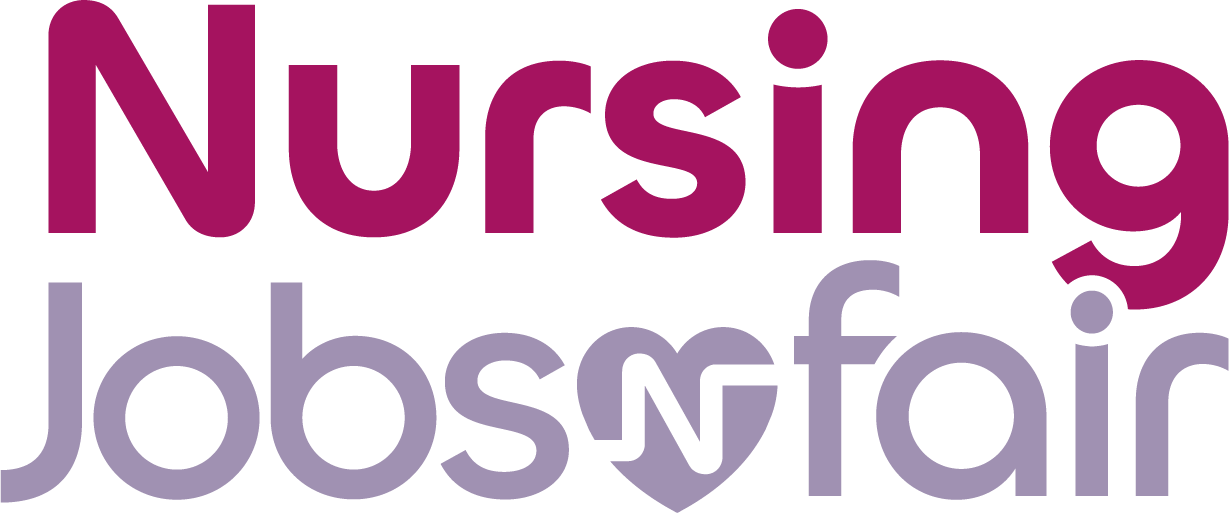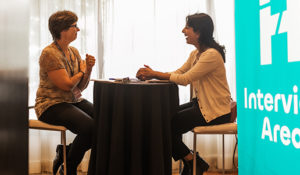Preparing for a job interview is never easy.
As a nurse hoping to land your next placement, you’re expected to be up to scratch on proper procedures, medication, the state of the sector and the values and goals of the organisation you’re applying to.
You’ll be asked to navigate difficult care scenarios and prove you’re capable of working well with your colleagues in a fast-paced, often stressful environment. All this, while having to remember to show up on time and make a stellar first impression.
We can’t sit your interview for you, but what we can do is help talk you through a few crucial tips to bear in mind as you prepare for your nursing job interview.
To help you get into the fine details when prepping for your interview, we’ve also compiled a helpful list of questions that are likely to come up in your nursing job interview and tips on how to answer them!
1. Know the Organisation
Thoroughly research the hospital or facility you’re interviewing to join; know the organisation’s leaders, its values and whether it is hitting targets or not, and work these details into your answer.
Knowing the place you’re applying to join seems like obvious advice, but it has undeniable benefits that will help carry you through your interview. Thoroughly understanding the organisation you’re interviewing for will not only enrich your own answers and help you frame your responses with foreknowledge of where you’re hoping to work, but will show your interviewers that you’re passionate about this job application and their organisation. You want them to understand that this isn’t just one application out of a dozen; this is the one you truly care for and are eager to land.
Having a grasp on who the organisation’s leaders are, the values that drive the organisation’s culture and whether or not they are hitting their targets will help inform your responses and demonstrate your passion for and knowledge of the sector.
2. Show, Don’t Tell Your Skills
In storytelling, the advice to writers is ‘Show, Don’t Tell’. When you’re sitting an interview, you’re telling the story of yourself, and how you uniquely fit the needs and culture of the organisation you’re applying to. ‘Show, Don’t Tell’, then, applies to you just as much as any other storyteller.
Rather than just rattling off a list of skills on your CV, you want to demonstrate how you have used them in the past to meet the same challenges now faced by the organisation looking to hire you. For making sure you’re nailing this every single time you answer a question, there’s the helpful STAR method to keep in mind; a simple framework to help structure your answers and showcase you at your very best.
The STAR method works as follows:
Situation – Set the scene, giving necessary details to best illustrate your example.
Task – Explain exactly what it was you were required to do.
Action – Detail what specifically you did to accomplish the task, showcasing the skills and expertise you used to help you.
Result – How did it go? Demonstrate the outcomes of the actions you took to complete the task, and the lessons you learned from the experience.
3. Rehearse Care Scenarios
Scenario-based questions are a common occurrence in nursing interviews, challenging your response to various, mostly difficult situations that are likely to arise over the course of a shift. Rehearsing these questions ahead of time can help ensure you’re well-prepared to deploy a detailed answer (following the STAR method outlined above) and stop yourself from getting flustered by being caught off guard.
Illustrating your answer with examples from your own experience and training helps ground your response and demonstrates to the interview panel that you are applying core practice principles in answering a hypothetical situation.
This applies to scenarios put to you that you have had no personal experience of yet in your career too; you can reassure the interviewers by making reference to the training that helped you reach a decision on how to respond to such a situation.
4. Know Your Medications
In this same vein, when illustrating your examples with real-life experience never shy away from showing off your knowledge of medications and their uses. Take some time to refresh yourself beforehand on key medications you use or have used in your work, building up a knowledge reserve that you can roll out during your answers to further demonstrate your hands-on expertise and impress the panel.
When probing you on scenario-based questions, interviewers are looking to confirm that you are up to speed on and can adhere to proper procedure. A big part of proper procedure, of course, centres on medications, ensuring that you have the up-to-date and correct information and can apply that knowledge to real-life scenarios.
Don’t be afraid to do some study ahead of time before your interview – there’s a lot of information a nurse is expected to retain and call upon on a regular basis, and making sure you’re refreshing your memory is never a bad thing.
5. Listen!
Interviews are a two-way process. The recruiter isn’t just testing your skills, they are also getting to know you and judging how you respond in a social setting. In other words, are you a person they’d want to work with, and will you mesh well with the values and culture of their organisation?
With this in mind, never be afraid to ask questions, or seek clarification about questions you’ve been asked. Do what you can to show off your social skills and demonstrate that you’re pleasant to be around and to work with.
Most of all, be sure to listen – answer the question being put to you, not the one you’d rather they asked you. This stops the interviewer from becoming aggravated if it seems to them like you haven’t been listening but also demonstrates your ability to listen and respond to direct instructions that will be invaluable in a work environment.
And finally, smile! Your goal is to show them that you’re a pleasant person to work with, and there’s no more direct way to do so than showing up with a smile and a positive attitude. Be friendly! One or more of the people you’ll talk to during your interview process will have to work with you every day if they hire you; make sure they know you’re going to make those days brighter.
6. Prepare Questions of Your Own
Towards the end of an interview, you’re likely to be asked if you have any questions you’d like to put to the interview panel yourself. Remember what we said above about interviews being a two-way process? This is your opportunity to open up the dialogue and get to know the interviewers and the role on your own terms, based on your own criteria.
More than that, though, this is an important chance to demonstrate your passion and your specific interest in this role and this organisation to the interview panel. Ask pointed questions, riffing off the background research you’ve done to show off your knowledge of the organisation and demonstrate your grasp of what the role requires and your place within it.
Be careful about asking questions that interviewers have already answered over the course of the conversation to that point. This is why we advised above on the importance of listening – if you’re asking questions whose answers have already been provided, they will sound rehearsed and insincere, compared to questions that engage the interviewer and proactively drive the conversation.
To help you with this important step, we’ve compiled a list of useful questions to pose during your nursing job interview.
7. Plan Ahead – Be Punctual
Play it safe. It’s better to arrive a good few minutes early than take the chance of trying to arrive bang on time and missing the mark.
Plan your route out beforehand so you know exactly where you’re going, and if you’re taking public transport make sure you not only know the timetables for each stage of your journey but are ensuring there’s leeway in case you’re delayed at any step or happen to miss a connection.
This is good advice for all job interviews, but it carries extra weight for nurses, where your ability to arrive on time is the difference between your colleague getting off their 12-hour shift on schedule, or having to wait around an extra half an hour for you to relieve them.
8. Dress Smartly
It may sound like a cliché – it may even BE a cliché – but dress for the job you want. In the case of a nursing job interview, that simply means dressing as if you’re taking the interview and the position seriously (which, hopefully, you are). Your ‘Sunday best’ is more than appropriate in this case, be that a suit or a dress or anything that underlines your professionalism and seriousness.
This isn’t just about demonstrating your interest to the hiring manager, however. Dressing up for something like a job interview can help inspire confidence and bring out your best side, exactly the added oomph you might need to present yourself properly to the panel and prove you’re the right person for the job.
Ultimately, as we’ll discuss more below, first impressions are everything, and you’re only boosting your chances by ensuring you look your utmost best before the interview even begins.
9. Be Charming to Everyone You Meet
One famous anecdote of a doomed job interview recounts how a highly qualified job candidate wows the CEO of a financial firm during the final stage of a lengthy and gruelling interview process which the candidate has excelled at. Having concluded this final one-to-one interview, the CEO is of a mind to make a job offer to the candidate and complete the process.
As the CEO returns to his office following the interview, he checks in with the receptionist, who happened to be the one who welcomed the candidate to the building earlier that day. As he praises the candidate’s skillset and affability, however, the receptionist observes that the candidate in question had been cold and dismissive towards her when arriving earlier for the interview.
Later on, the CEO makes his decision and directs the receptionist to inform the candidate that unfortunately, they will not be taking her application forwards at this time.
This story, though likely fictitious, bears a kernel of wisdom to it. When interviewing in person, you are being judged from the moment you step through the doors until the moment you leave again. Treat every interaction as part of your interview, as it is not unheard of for interview panellists to follow up by asking about you to staff who had occasion to bump into you during your visit.
Don’t sabotage yourself by allowing nerves or stress to cause you to treat someone else less than cordially – after all, many of these people will hopefully be your colleagues some day soon. It pays to leave a positive first impression.
Good Luck!
With these guidelines in mind, you’ll hopefully be showing up to your interview forearmed with extensive prep and a healthy dose of self-confidence.
At the end of the day, don’t forget that the organisation interviewing you needs you every bit as much as you might need them. The nursing skills shortage in healthcare is a worldwide phenomenon, and healthcare providers such as the one you’ll be interviewing with are desperate to plug gaps in their shift rosters.
Interviewers may be intimidating, but they’re not your enemy. They want you to succeed just the same as you do, to make the costly and time-intensive hiring process bear fruit. Be friendly, joke and laugh with them, and ultimately remember that you’re all on the same side – providing quality care to those who need it most, at some of the most vulnerable times of their lives.








